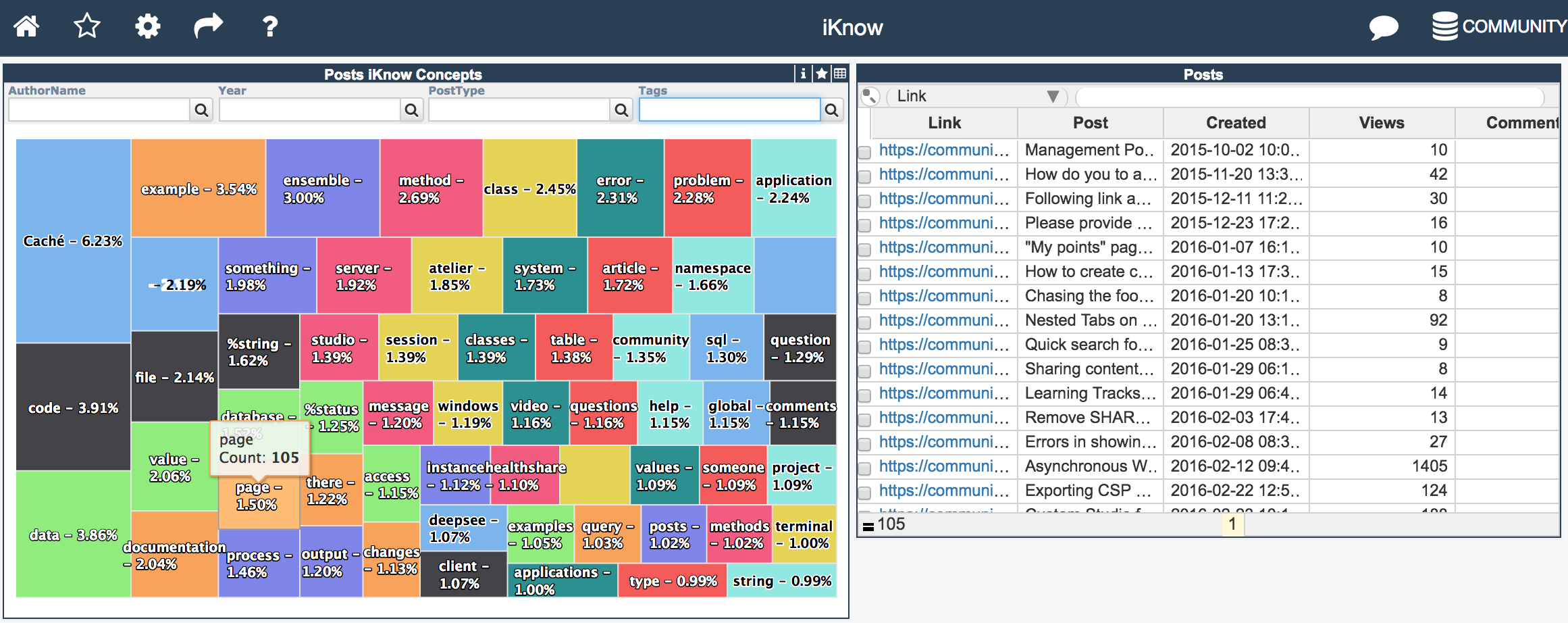Hi, Community!
Hope you know and use the Developer Community Analytics page which build with InterSystems DeepSee and DeepSee Web.
We are playing with InterSystems iKnow analytics against Developer Community posts and introduced the new dashboard, which shows Top 60 concepts for all the posts:

